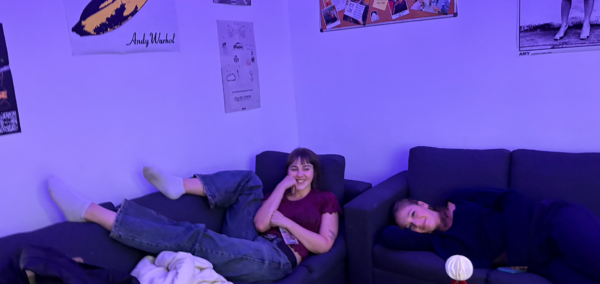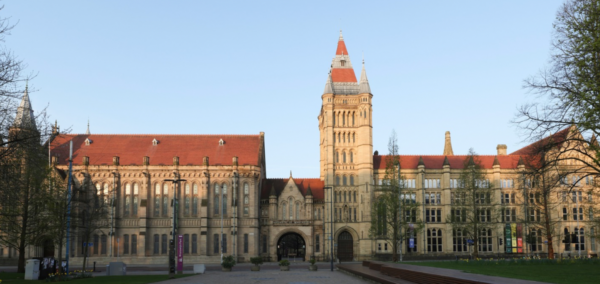
Anglia Ruskin medical students struggle financially as loans fail to cover cost of living
New statistics revealed 44.3 per cent of students expected to run out of money before the end of the academic year
The cost of living crisis has left Anglia Ruskin University’s medical students struggling to make ends meet.
The past few years have not been kind to the UK’s students. Statistics from a UK wide student survey by BMC Medical Education in April and May 2022 found that almost 1/2 (44.3 per cent) of students expected to run out of money before the end of the academic year, whilst nearly one in 25 reported using food banks.
As of 2025, students are still struggling to keep afloat. BMC Medical Education’s survey of Anglia Ruskin University’s medical students found that problems remain endemic to student support systems in May 2025. The survey finds that financial aid fails to cover students most basic costs and as a result many turn to part time work, having a detrimental effect on their studies and mental health.
Of the survey’s 147 respondents, 53 per cent receiving maintenance loans reported that their loans only covered up to half of their costs. Indeed, further NHS bursaries cover only 30 per cent of expenses, leaving a difference to be covered by students.
69 per cent of students restricted spending on essentials like food
Rising inflation means costs of living are materially higher, and maintenance loans are not adjusted to keep up. 83 per cent reported significant increases in amount spent on rent, household bills (as fuel prices rise) and food. 69 per cent found themselves restricting their spending on essentials such as food, heating and clothing, the very commodities that a maintenance loan should cover.

Image Credits: BMC Medical Education
Most Read
Inevitably, with financial assistance failing to adequately cover students’ vital costs, students turned to working alongside their degree to make ends meet. 72 per cent felt the pressing need to either go into employment or otherwise increase their current working hours.
Students indicated that the cost of living crisis placed them under great mental and emotional stress
Employment alongside the degree was far higher in first generation students. 55 per cent of these students also in the workforce either agreed or strongly agreed that their job had a negative impact on their studies. The report also found that students indicated that the cost of living crisis placed them under great mental and emotional stress and moreover impacted family and personal relationships, having a debilitating impact on their social life and extracurricular activities, as well as of course informing their academic and professional decisions.
Adverse effects are felt most acutely in demographics that are already disadvantaged: Those from lower income families, first generation families and those entering the university through widening access programmes

Image Credits: BMC Medical Education
‘Not eating out bar birthdays. Buying frozen food always’
The study found that 37 students struggling with higher rents sought cheaper alternatives, including moving back home. The study finds a prevailing sense that students felt they were living in a state of relative poverty: “Shopping in charity shops, not going out socially. Not eating out bar birthdays. Buying frozen food always. Having left over food from work as dinner.” Over a third (36 per cent) cited extreme frugality with heating and choosing to eat less or unhealthier food to reduce expenses.
The costs of studying build up: Certain books, website subscriptions that keep revision behind paywalls, apps that demand paid subscription all amount to further expenses. BMC found that one student said: “I can’t always afford equipment, books and access to revision sites to aid revision that others have access to. Unfortunately, some of the best revision resources are paid for.”

Image Credits: BMC Medical Education
These pressures took their toll on student in the studys: 20 per cent reported worsened mental health, 17 per cent reported anxiety, depression, and the need for professional support with their mental health whilst an alarming 18 per cent are considering dropping out of the course altogether: one student admitted that they were “Seriously considering going back to work and dropping out of studying.”
Several students have families of their own, with one confiding: “We are struggling to pay for rent. I am also a new mother and whatever money I receive from maintenance goes towards nappies, food, baby things. I have very little left to cover my tuition fees. I must pay tuition fees as a grad with NO bursary support. This university gave £100 for bursary… that all went on my transport to this campus… in two days. A complete joke. There is no financial support or accessibility.”
Another added: “I have a family to support and the increased costs of living, increased mortgage rates and travel prices have meant studying is more costly than initially expected. I struggle to ensure my family are comfortable.”
The report concludes that there is an urgent need for increased financial support for medical students. The current financial aid structure is found to be profoundly insufficient, when under the mounting pressures of the cost of living crisis and fails to meet student’s most basic needs. The report finds ARU’s medical students to be compromised in their education, well-being, and professional development.
Anglia Ruskin University was contacted for comment.
Featured Image Credits: Madeleine Wood


















